The following content may contain affiliate links. When you click and shop the links, we receive a commission.
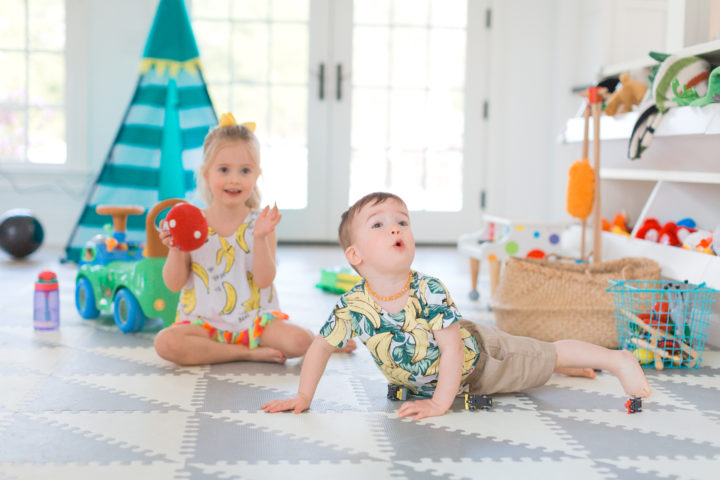
There are few things as unpredictable or mortifying as a Toddler’s mouth. What do you get when you mix a growing vocabulary and worldly interest with an all-encompassing innocence and lack of boundaries? Well, you pretty much get my social experience over the past year or so! Because as my kids are very innocently learning, exploring the world, and voicing what they see around them, it can lead to some some pretty awkward moments for the parent in charge. And I bet most other parents of a toddler can relate. Today I wanted to talk a little bit about uncomfortable comments from kids, because I’ve been thinking a lot about how limited I’ve been when dealing with some of the comments and questions my own kid makes– and I think I have lots of questions of my own about what the most productive, loving, or modern way is to deal with answering them.
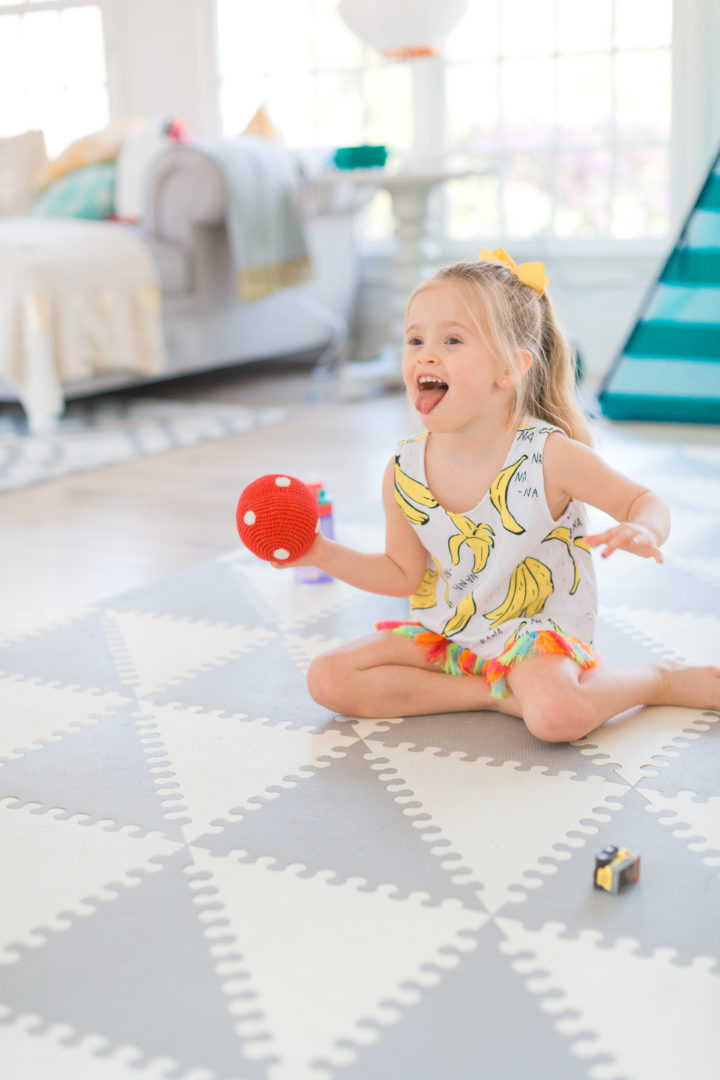
First, I’ll regale you with a couple stories for a little context. On Thanksgiving morning this past year we were having breakfast with some friends in town. There was a little lull in conversation, and I suddenly heard Marlowe’s little voice very clearly, loudly, and sweetly ask my friend’s seventy year old mother if she had a baby in her belly. I froze. Nobody spoke, and just as I was about to say something, anything, my friend’s mother laughed and just said “No I don’t sweetheart.” And that was that. Later when we left, I explained to Marlowe in the car that it wasn’t ever polite to comment on another person’s body, and that it is especially not polite to ask people if they’re pregnant. She asked me why. I have never, ever, spoken to her about any association with largeness of a body and the term “fat” holding negative connotations culturally. I make a huge effort to make sure that nobody is qualifying bodies in her presence– so I was suddenly stuck. How would I explain to her WHY telling somebody that they look pregnant when they’re not is negative if I don’t explain all about fat shaming culture? I was stumped. I simply told her that sometimes it can hurt certain people’s feelings, and it’s better to just whisper and ask me in my ear if she thinks somebody is pregnant. But it was definitely one of those parenting moments where I wasn’t sure I had a complete handle on what had just happened.
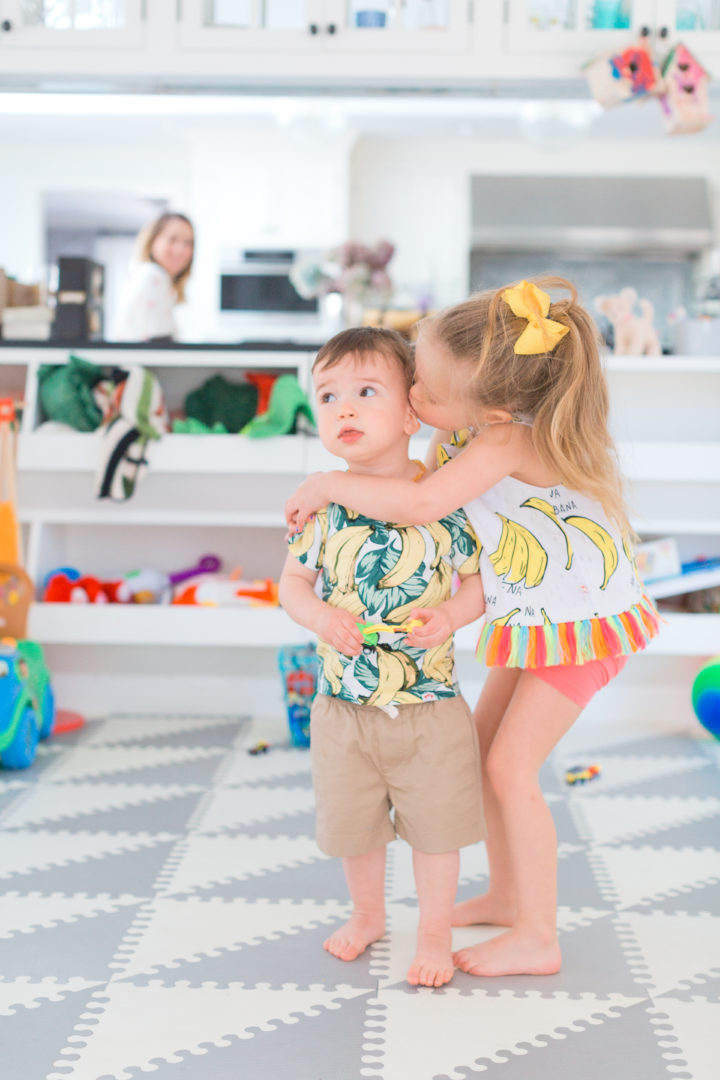
A couple months ago, Kyle and I were at the children’s museum with the kids. We were eating lunch in the cafeteria, and at the table next to us was a family with a few children. One of the kids, around Marlowe’s age, had a genetic physical difference (I’m not sure the name or “label” for it) where his face, voice, and body were very different from hers. The boy’s mother asked me about Major’s shoes and we started talking. Marlowe was looking at the little boy while I was talking to his mother, and after a few moments she said (loudly) “Mommy! Look, at this little boy! He’s so silly Mama. Look at his face!” The way she said it was so sweet and delighted, as if she was amazed to see his differences and wanted to point them out– and loudly. I, of course, was mortified. What else do you feel when you are so worried that your child has just hurt an entire family’s feelings? I didn’t know what to do, and I was panicking inside wondering what the RIGHT thing to do was. I froze for a second or two and blurted out “He’s not silly, Marlowe, that’s who he is. He’s just different from you. Why don’t you introduce yourself.” I wanted to normalize the situation, but I also wanted to explain to her why they were different, or open a conversation with his family, or somehow make the experience less awkward for everyone, and more normal for this little boy.
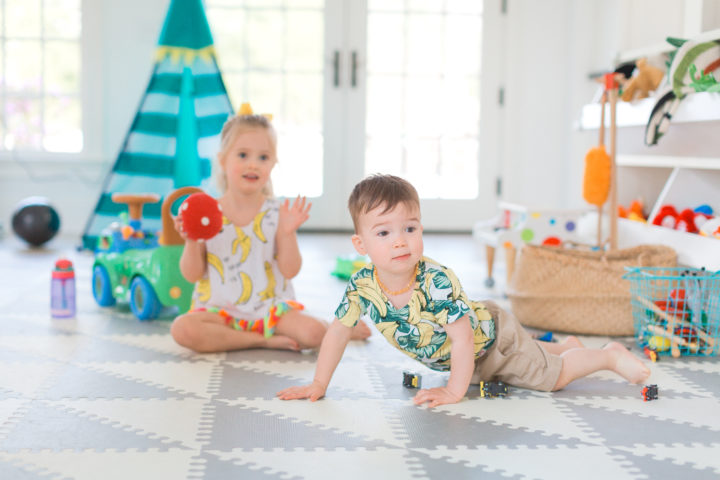
As the day went on, I was just so overwhelmed and I so badly wished that I could have asked that family (again, is there a non awkward way to do this?) what the best way to handle that situation is. Is there something to teach your children that makes differently-abled or different-looking children feel truly “seen”, as well as their families? My instinct is to always explain to my children that everyone on this planet is different from each other, and that is what makes everyone special– and I did have a conversation with them to that effect later– but I can’t help but think that as somebody with limited experience in this arena I’m probably not the best person to be coming up with my own approach.
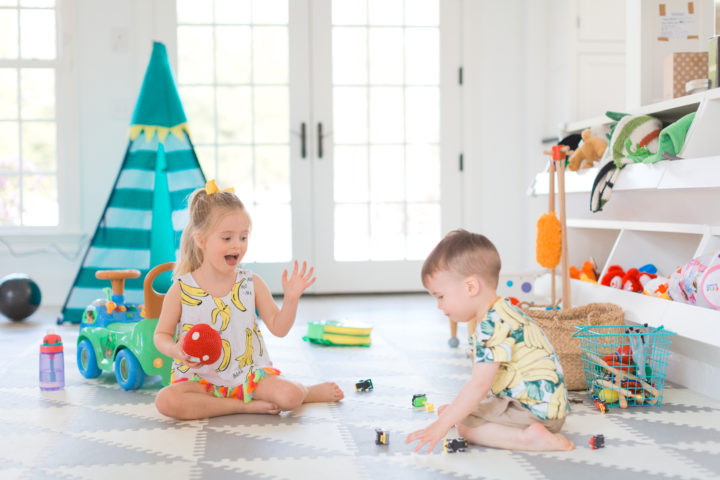
So here’s where I ask for help: I would be so grateful if anyone with physical limitations or differences– or who has children with the same– would help me understand how to handle my children’s curiosity. Of course children’s uncomfortable comments come in many varieties, with most being more benign than others. (One of my favorites that I’ve had to deal with recently was a lovely “Mom, this house smells like poop a little bit” upon entering a hostess’s foyer) But I would love any input about how you have used these moments to teach in your household! Thank you!
Photographs by Julia Dags.
Hi Eva! I don’t have experience with this yet as my son is Major’s age. But, your post reminds me so much of the book “Wonder” by RJ Palacio. She says she wrote the book because of her own uncomfortable moment with her child and a child with physical differences. I’m a school librarian and recommend this book for children and adults. It’s obviously too advanced for your kiddos, but it’s a wonderful book for you to read and share with Marlow and Major later on.
I’ll be interested to read people’s suggestions since I’m sure I’ll be dealing with these moments soon enough.
There’s a children’s version that I bought for my 5 and 7 year old!
What is the children’s version?
This is a great suggestion! Maybe the movie would be good for us to watch together
I love the way you handled the museum situation with Marlowe. I think a lot of people react quickly with “you can’t say that!” Instead, it’s better to reassure the parent of the other child that you’re teaching your own, that it’s okay to be different. Like you said, normalize it.
I will admit that my first reaction was to clamp my hand over her mouth…but I didn’t do that!
My nephew Hunter,4, once was playing in the playground with a boy with down syndrome. He kept looking up and giggling at the boy, very innocently, but I talked to him later on about how everyone is unique, from their heart-beats to their fingernails and that we shouldn’t laugh at what makes them unique but appreciate it. He listened to me in the way nephews listen to their aunts and said: ok.
I hope this helps 🙂
-Steph
Talking later is always a good option when you have time to organize your thoughts and you are alone and the child can have all the follow up questions they wish. Not a fan of whisper in my ear if you have a question. In my opinion whispering in front of others is just as rude and just as obvious. Also toddlers are generally not the best whisperers?
aww I love that!
I follow an Instagram account called skiptomyluca. She not only teaches special needs kids but also has a little boy with special needs. She has covered topics on her live feed on handling various situations with young kids and they were all so simple and yet effective. I am sure she would have wonderful insight for you on this topic!
You beat me to it! 🙂 I follow @SkipToMyLuca as well. Jessica posts the best gentle parenting advice! Jessica is a former special education teacher and her son, Luca, was “born with Hypoxic Ischemic Encephalopathy (HIE for short). We love sharing our stories, the things we love, glimpses into our lives and spreading awareness about disabilities.”
A lot of times, families with disabilities or differences feel isolated, feared, stared at. One way to beat that is if your child has questions, actually have them ask the person or parent about it. Most parents of kids with differences are more than happy to have a conversation with a wide-eyed child and teach them love and understanding.
I can’t recommend this approach enough! My 6 year old niece, Millie, has several disabilities and needs an array of equipment. My sister (actually the whole family) LOVES it when kids come up to interact with her and ask questions. As Samantha said, they often feel very isolated or like everyone is staring when they are out and about. The interaction is always welcomed and we love getting texts when Millie makes a new friend.
I recommend this mom’s blog https://theeloisediaries.com/
Thanks!
Well done, Mama! My almost 4 year old asked over the weekend why a particular man had “boobies”. He was on the larger size and I was speechless and just apologized profusely to our host. Looking forward to reading suggestions on how to handle these situations.
Ohhh little ones! The nice thing about these awkward moments is that we get to shape our tiny humans into inclusive and accepting adults through these conversations. (After we get pass our moment of AWKWARD!)
I thought this piece had really good advice for comments on differences:
https://www.zerotothree.org/resources/1539-talking-to-toddlers-about-differences
I feel the same way! Thanks for this resource! xo
I have 3 girls (11, 6, and 3) and I feel like this is an area I struggle with. I think because we want to have the perfect response everytime and we are not perfect. We first have to let ourselves be human beings. That being said I always stick to the “we all come in different shapes and sizes.” “Being healthy is important regardless of size.” I once read an article where a mom of a special needs child said that the most hurtful thing was that people always ignored their special needs child. When we encounter children with special needs, I help my kids find something that they have in common (like a shared love of Elsa). I also read somewhere once that you shouldn’t make excuses for them. So if they say something like the poop comment, you should just apologize and keep it moving.
I can totally relate to this feeling of needing every response we have to be perfect or exactly right. So important to let go of that and know that any moment isn’t the “last word” on a topic, so to speak. I have to remind myself of this a lot
I’m a grandma now but when my children were young our rule was they were not to comment on people… how they look or smell or anything. I always said we could talk about anything privately afterwards but to keep comments to themselves in front of people. I also would educate them ahead of time if I knew they would encounter a situation that might be new to them. They’re great, loving, open minded young men now so I feel like that worked for our family.
If you act naturally every day there is nothing to be ashamed of. Those uncomfortable situations show us how far we are from a natural condition. Kids can’t tell the difference!
I think you handled the museum situation terrifically, especially off the cuff! There is a great Daniel Tiger episode where the kids meet Prince Wednesday’s cousin, Chrissy, who uses crutches and has braces on her legs. The jingle is “In someways we are different but in so many ways we are the same” I’ve referenced this episode to my son many times when he’s been curious about any one who appears different than what he’s used to. He’s still made uncomfortable comments – LOUDLY – and at times I’ve quietly died inside. But my hope is that people understand he’s 5 years old, and while it’s a social faux pas, he’s not malicious.
Oh nice, I will look up that episode!
One of the “joys” of early parenting LOL. So my 5 year old has made comments about thinking people were pregnant too, and here’s what worked for us back then! And now she knows not to say it! I taught her two new concepts: “culture” and “public.” Once I knew she understood what those were, I told her in our American culture we do not discuss certain things in public. The size of people, wondering if someone is pregnant, private parts (she knows the proper names for girls & boys privates), and potty/poopy humor. I said there is nothing wrong with any of those things, but it is simply in our culture that we don’t discuss them in public. She is free to talk about them and ask questions at home or quietly to me when we are out and about. But this has worked very well for us! And about being different, my daughter had a big hemangioma (great big red birth mark) on her head when she was a baby. Little kids pointed it out ALL the time and I could tell their parents were embarrassed. But I was never bothered by it. I know that kids are just curious and learning. I kindly explained to them that it’s a birthmark and that’s all there was to it! Now it’s covered up with her hair so we don’t have to deal with it any more, so I’m not sure what it’s like for older kids and their parents. But I’m sure they are used to dealing with kids asking questions and have had their own conversations about it at home!
My youngest brother is low functioning autistic and intellectually disabled. He is visibly different than other kids. Trust me when i say the parent’s and child will love if you have your kids interact with them. Explain it to them. Have the parents explain it. Anything that isn’t staring and whispering is perfect. Thats the worst in these situations. Just interact and show the family that you want to help make this experience great for both kids. There are so many times I’ve gotten mad at people staring and saying nasty things about my nonverbal little brother. But when someone asks what’s wrong and care to listen, it changes everything. Special needs families know how hard it can be. We appreciate when others help normalize the whole situation.